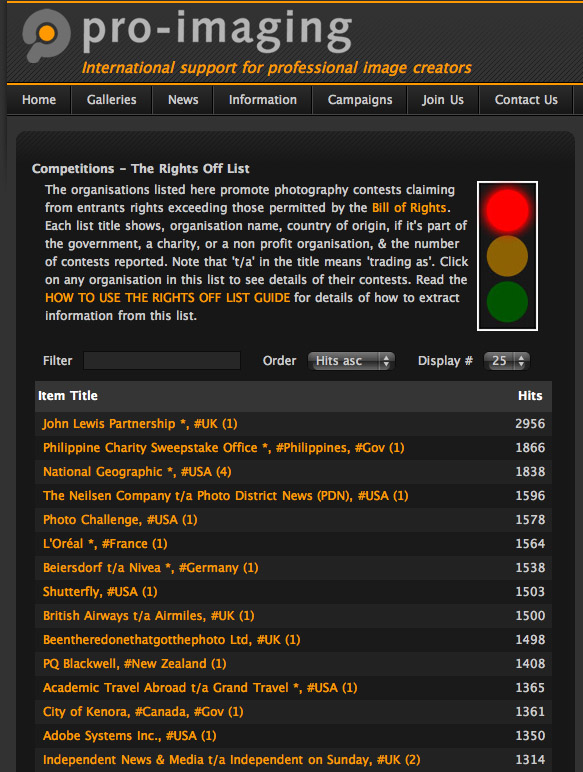The public are getting wise, proceed with caution…
Friday Thought.
Commercial and public organisations are constantly on the lookout for new ways to engage with customers and the general public. This is understandable and very easy to do now that the internet is highly interactive. Done properly, it can work very well.
However, not all such campaigns are successful in attracting positive PR. One popular idea is to engage with your public by asking them to give you free stuff. Most often, for obvious reasons, photos.
A classic example is when some bright PR spark decides that it would be “cool” if customers sent in their best photos for the company to use for free in its web site, advertising and publications. The conditions for giving the business this free stuff will normally be couched in very legalistic terms, with conditions so harsh, unforgiving and one-sided that only the clinically insane would take part in such a scheme. The bigger problem perhaps is that many customers will ignore the T&Cs because they don’t expect their big, cuddly corporate to do anything underhand or greedy, so they tick the “I have read and understood” bit, having neither read nor understood what they were committing to.
If your organisation is looking into trying this kind of customer interaction, let me sound a word of caution. Amateur photographers are getting wise to this kind of exercise. They’re beginning to understand that if somebody wants their photos, their photos must have a monetary value. Just as if you asked them for the keys to their car, or for a few hours free graft, they understand that while any idiot can give something away for free, it takes a special kind of idiot to do it willingly. And amateur photographers aren’t idiots.
Several organisations and businesses have already bought themselves some negative publicity trying this kind of exercise. The UK’s Environment Agency recently put out a call for graduates, keen on photography, to become free labour suppliers of photos. The BJP wrote an article about it, the EA had to take their Facebook page down at one point, and then finished with a spectacular U-Turn.
Other organisations currently fighting a backlash from photographers include the publisher Archant with their Great British Life photo competition, and Greater London Authority wanting free photos for their new web site. I know there are many more examples, but you get the picture (for free!)
Photo competitions which hide rights grabs are another example where photographers, both amateur and professional, have forced a change of terms and conditions, but only after much negative publicity.
The examples of companies which have attempted this particular wheeze and then had to change their T&Cs to be more like a photo competition than a phishing trip is too long to list here, but you can check out the Pro-Imaging web site to see what makes a competition fair, and see which organisers have adhered to the Bill of Rights which has been drawn up through industry-wide consultation.
These schemes and scams keep popping up, and most get battered down by hobbyists and professionals working together for the better ineterests of photography. Why companies and organisations continue to make the same mistakes time after time is a mystery, but I do see the tide turning against this trend for what has been described by others as “loser-generated content”.
So use the internet to interact with your clients and your audience, but don’t ask too much because your clients can quickly swamp the message you intended to broadcast with the ugly sound of protest at unfair practices.

